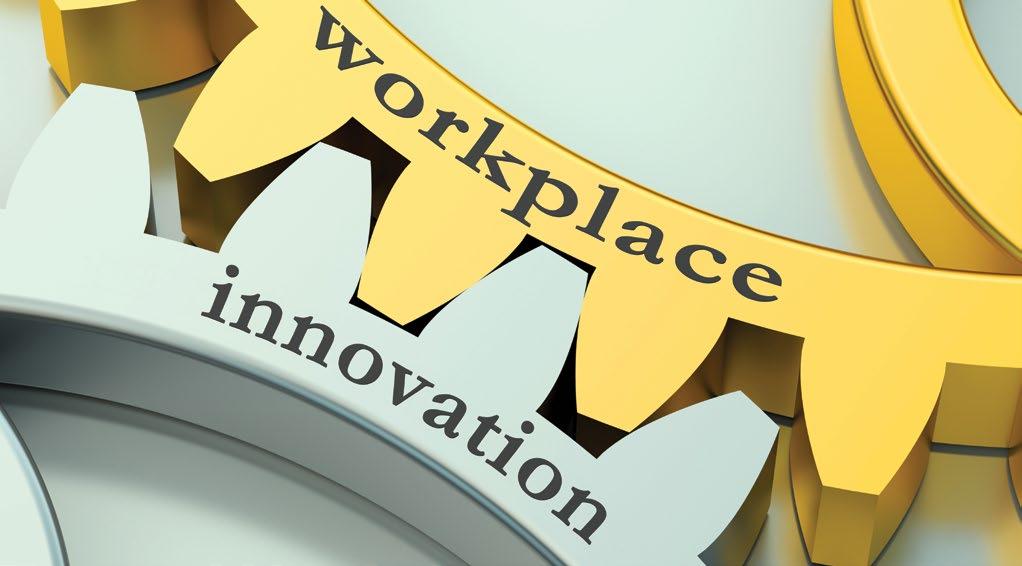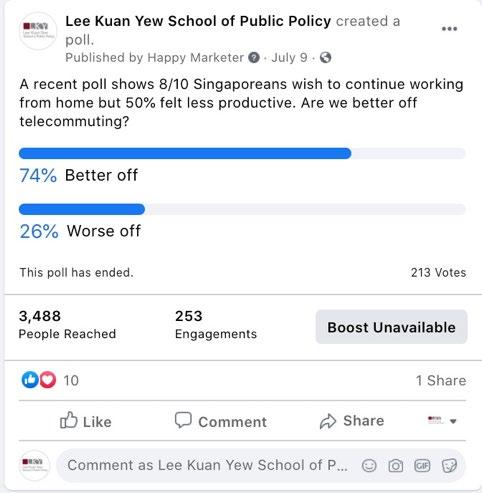
2 minute read
How has COVID-19 changed the way we work? A conversation with Assistant Professor Taha Hameduddin
from Global-is-Asian 2020 issue
by Lee Kuan Yew School of Public Policy, National University of Singapore
FORESEEABLE IS A PODCAST SERIES FEATURING CONVERSATIONS WITH A LEE KUAN YEW SCHOOL OF PUBLIC POLICY FACULTY, POLICY EXPERT OR PRACTITIONER. FORESEEABLE IS AVAILABLE ON:
https://spoti.fi/3qTzadS https://apple.co/3m1dRUD https://bit.ly/2LeY87M
Aug 6, 2020 • 17 min
Featured Faculty: Taha Hameduddin Assistant Professor, Lee Kuan Yew School of Public Policy
Following the second episode of the Asia Thinker Series Talkback - After the Pandemic “A Test of Resilience: Workplace Innovation and Strategies”, Globalis-Asian caught up with Assistant Professor Taha Hameduddin to find out how workplaces have changed since the COVID-19 pandemic hit.
How should we be looking at the workplace and how should leaders plan and execute to be effective?
It really is dependent on the social sort of environment and the political environment. As countries get out of this lockdown or circuit breaker, as restrictions are lifted, there will have to be some sort of conversation about to what extent will they be working from home.


A poll run on the Lee Kuan Yew School of Public Policy Facebook page showed 74% of respondents felt that employees were better off telecommuting.
Maybe organisations might take surveys to kind of determine, just like we did on the Facebook page of the Lee Kuan Yew School of Public Policy, to determine whether people prefer working from home rather than going into the workplace. But I think there will be a lot more acceptance, a lot more perhaps even preference for working a few days at the house compared to having to come into work every single workday of the week.
One of the reasons why this would probably be popular is because offices cost a lot of money. So, having to rent out that space, if it’s vacant, you don’t have to have so much space and you can actually get rid of quite a lot of square footage when you don’t need it.
I think there’s probably going to be some change fundamentally in the way in which we approach the space in which we work, especially now that we have all these tools for connecting online. There’ll probably be some innovations there too. I think one of the things we got from the discussion was that in doing creative work, you have to kind of be in the same room together. What are the top three things organisation leaders can do to create a good company culture while telecommuting?
I think communicating, having different channels of communication. It doesn’t have to be memos or formal emails, it can be informal things. Having some events, touch points that help. Discussing performance regularly, having more empathy, having flexibility for people, and setting a vision for what we are going forward.
I think for a lot of businesses that have struggled at this time; they’re doing a fundamental rethink of their business models. And how do we approach the customer in this COVID-19 kind of world? So, leaders have a large part in communicating that, articulating a vision to motivate individuals.
Read the full article: https://nus.edu/3gIU0ZH Listen to the full podcast episode https://spoti.fi/3m5p9aq










